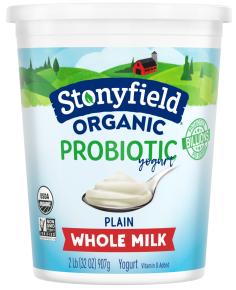Do you know a child who eats at a “peanut-free” table in the school cafeteria? Or one whose diet is devoid of wheat and gluten?
It’s important to work with a nutritionally trained health professional to ensure that youngsters with food allergies or intolerances receive adequate nutrition. Along with a careful eating plan, certain supplements can support digestive and whole-body wellness—or even reduce the risk of disorders occurring in the first place.
Food Allergies and Intolerances in Children
Common Food Allergies for Kids
Up to 8 percent of children suffer from food allergies. Food allergies are immune system reactions to certain ingredients that range from mild to severe. These are the most common food allergens among this age group.
- Milk
- Peanuts
- Tree nuts
- Eggs
- Soy
- Wheat
Food Intolerances
Intolerances, in which certain foods irritate the digestive system, are much more widespread. This may explain why an estimated 20 percent of children stick to some form of “elimination” diet (in which a potential problem food is avoided).
Natural Treatment for Food Allergies
-
Probiotics for Food Sensitivities
Some studies indicate that supplementation with probiotics is useful. Italian researchers have recently found that introducing these friendly bacteria into the gut may promote healthy immune system development in children predisposed to food allergies.
Other research shows that taking two strains of probiotics (Lactobacillus rhamnosus and Bifidobacteria lactis) improves itchy, inflamed skin in kids with food sensitivities.
-
Vitamin E and Omega-3s
Inflammation in the gastrointestinal (GI) tract and malabsorption of certain nutrients is a common concern.
One California trial investigated the effect of vitamin E and omega-3 supplementation among 187 autistic children with speech disorder. Many of these youngsters also had gluten sensitivity or food allergy and GI symptoms.
Most of the families—97 percent—reported improvements in speech, behavior, and other areas. These results led researchers to suggest that the “syndrome” of food allergy, speech disorder, and malabsorption responds well to supplementation.
-
Nutritional Balance
A holistic health practitioner can help parents identify the nutrients children are missing or absorbing inadequately. Dietary gaps may be addressed, for example, with a high-quality children’s multi along with calcium, magnesium, vitamin D, and omega 3s.
Other supplements, such as enzymes, and herbs can encourage digestive health and healing.
Risk Factors for Food Allergies
-
Heredity and Environmental Factors
Food allergies are thought to run in families, but parents can reduce other risk factors by following their pediatrician’s dietary guidelines for infants and protecting little ones from exposure to tobacco smoke.
-
Pregancy and Nursing
A mother’s diet during pregnancy and lactation seems to be another key factor.
-
Omega-3 Fatty Acid
Recent research in Sweden found that babies with a family history of allergic disease had fewer allergies in their first year of life—if their moms took supplemental fish oil.
Women in the study took 1.6 grams (g) eicosapentaenoic acid (EPA) and 1.1 g docosahexaenoic acid (DHA) or a placebo daily from the 25th week of pregnancy through an average three or four months of breastfeeding.
The number of children with food allergies or eczema was lower in the omega-3 group.
-
-
Multivitamins
Early use of multivitamins may also be protective. One study that looked at allergy patterns among more than 2,400 kids found that those who started taking multis at or before age four were less likely to have food sensitivities by age eight.



